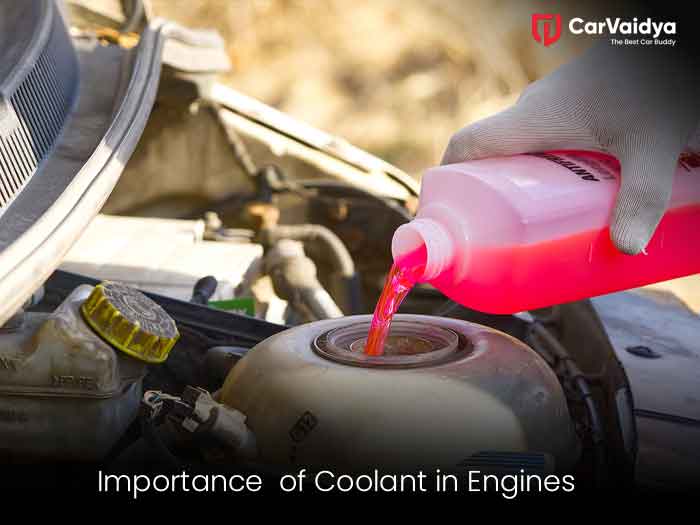Coolant plays a crucial role in maintaining the optimal functioning of internal combustion engines. Whether in automobiles, industrial machinery, or power generators, coolant is a vital component that helps regulate engine temperature. In this article, we will explore the significance of coolant, the risks associated with its absence, and the various aspects of engine cooling systems.
Heat Generation in Engines
Engines produce a substantial amount of heat during the combustion process. This heat, if not effectively managed, can lead to a variety of issues such as overheating, reduced efficiency, and even permanent damage to engine components. Therefore, a reliable cooling system is essential to dissipate this heat and maintain the engine's operational temperature within a safe range.
Function of Coolant
Coolant, often a mixture of water and antifreeze, circulates through the engine to absorb heat generated during combustion. It then carries this heat away from critical engine components to the radiator, where it is dissipated into the surrounding air. The process is crucial for preventing engine overheating and maintaining optimal operating conditions.
Coolant Composition
The composition of coolant is carefully designed to enhance its heat-absorbing and heat-dissipating properties. Water is an excellent heat conductor, while antifreeze prevents the coolant from freezing in cold temperatures and protects the engine from corrosion. The combination of these elements ensures that the coolant remains effective across a wide range of operating conditions.
Overheating and Its Consequences
When an engine operates without adequate cooling, it is prone to overheating. Overheating can lead to a cascade of problems, including increased wear and tear on engine components, reduced lubrication efficiency, and the risk of catastrophic engine failure. Seals and gaskets may also deteriorate under extreme heat, leading to leaks and further complications.
Efficiency and Performance
Coolant is not only crucial for preventing overheating but also for optimizing engine efficiency. Maintaining the correct operating temperature allows the engine to function at its peak performance, ensuring optimal fuel combustion, reduced emissions, and improved overall efficiency. A well-cooled engine operates more smoothly and has a longer lifespan.
Corrosion Prevention
Engines are made of various metals that are susceptible to corrosion. Coolant contains additives that protect engine components from corrosion, preventing rust and degradation of essential parts. This corrosion protection is vital for extending the lifespan of the engine and reducing the frequency of maintenance and repairs.
Winter Protection
In colder climates, the absence of coolant can lead to freezing of the engine's water jacket and other components. When water freezes, it expands, potentially causing irreparable damage to the engine block and other vital parts. The antifreeze component in coolant prevents freezing, ensuring the engine remains operational even in sub-zero temperatures.
Types of Coolant
There are various types of coolant available, each designed for specific engine requirements. Some engines may require long-life coolant, while others may benefit from extended-life or organic acid technology (OAT) coolants. It is essential to use the right type of coolant recommended by the manufacturer to ensure compatibility and optimal performance.
Cooling System Components
The cooling system consists of several components working in tandem to manage engine temperature. These include the radiator, water pump, thermostat, hoses, and the fan. Each component plays a crucial role in maintaining the proper flow and temperature of the coolant throughout the engine.
Signs of Cooling System Issues
Recognizing the signs of cooling system issues is vital for proactive maintenance. Symptoms of cooling system problems include overheating, coolant leaks, a persistent sweet smell from the engine, and visible signs of rust or corrosion in the coolant. Ignoring these signs can lead to severe engine damage and costly repairs.
Regular Maintenance
To ensure the effectiveness of the cooling system, regular maintenance is essential. This includes checking coolant levels, inspecting hoses and belts for wear and tear, flushing and replacing coolant at recommended intervals, and addressing any issues promptly. Routine maintenance helps prevent unexpected breakdowns and extends the life of the engine.
Conclusion
In conclusion, coolant is a critical component for maintaining the health and longevity of internal combustion engines. Its role in heat dissipation, corrosion prevention, and overall engine efficiency cannot be overstated. The absence of coolant poses significant risks, including overheating, reduced performance, and potential engine failure. Engine owners and operators must prioritize regular maintenance and adhere to manufacturer recommendations to ensure a well-functioning cooling system and a reliable, long-lasting engine.
You can read some other articles
Ensuring the safe handling of CNG and PNG vehicles
Car Service When and How To Service Your Car
At what speed does a car get better mileage


0 Comments